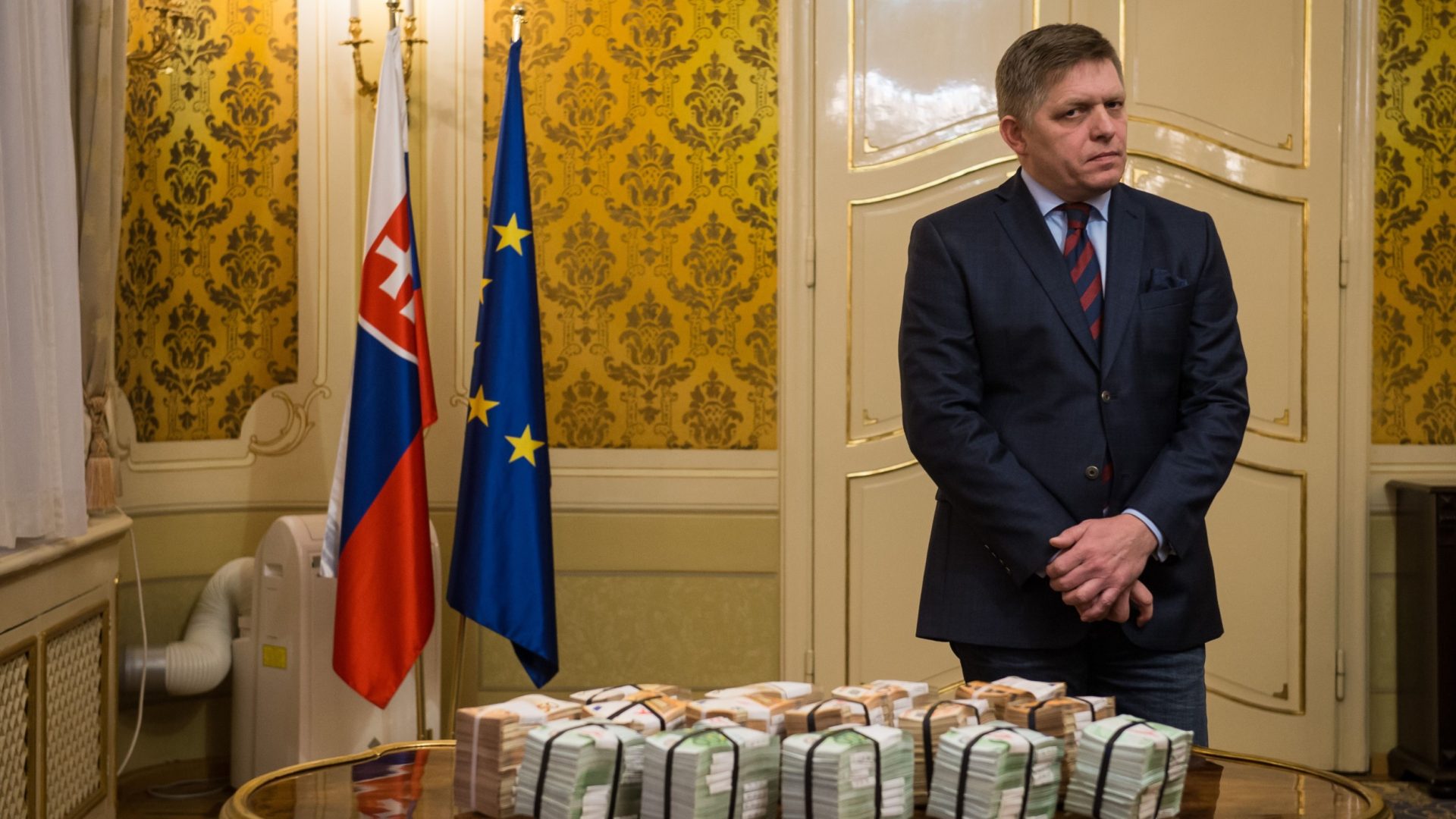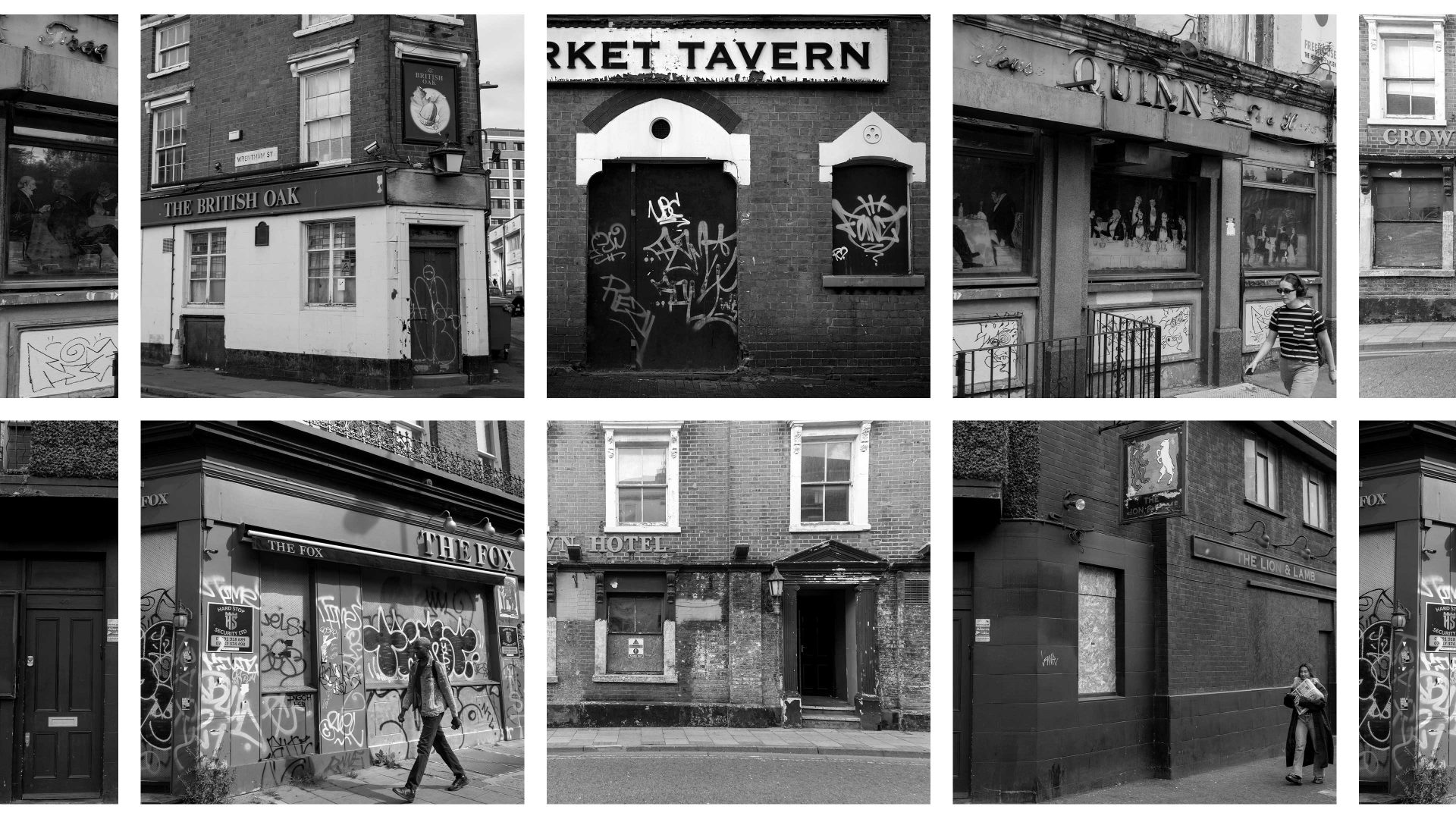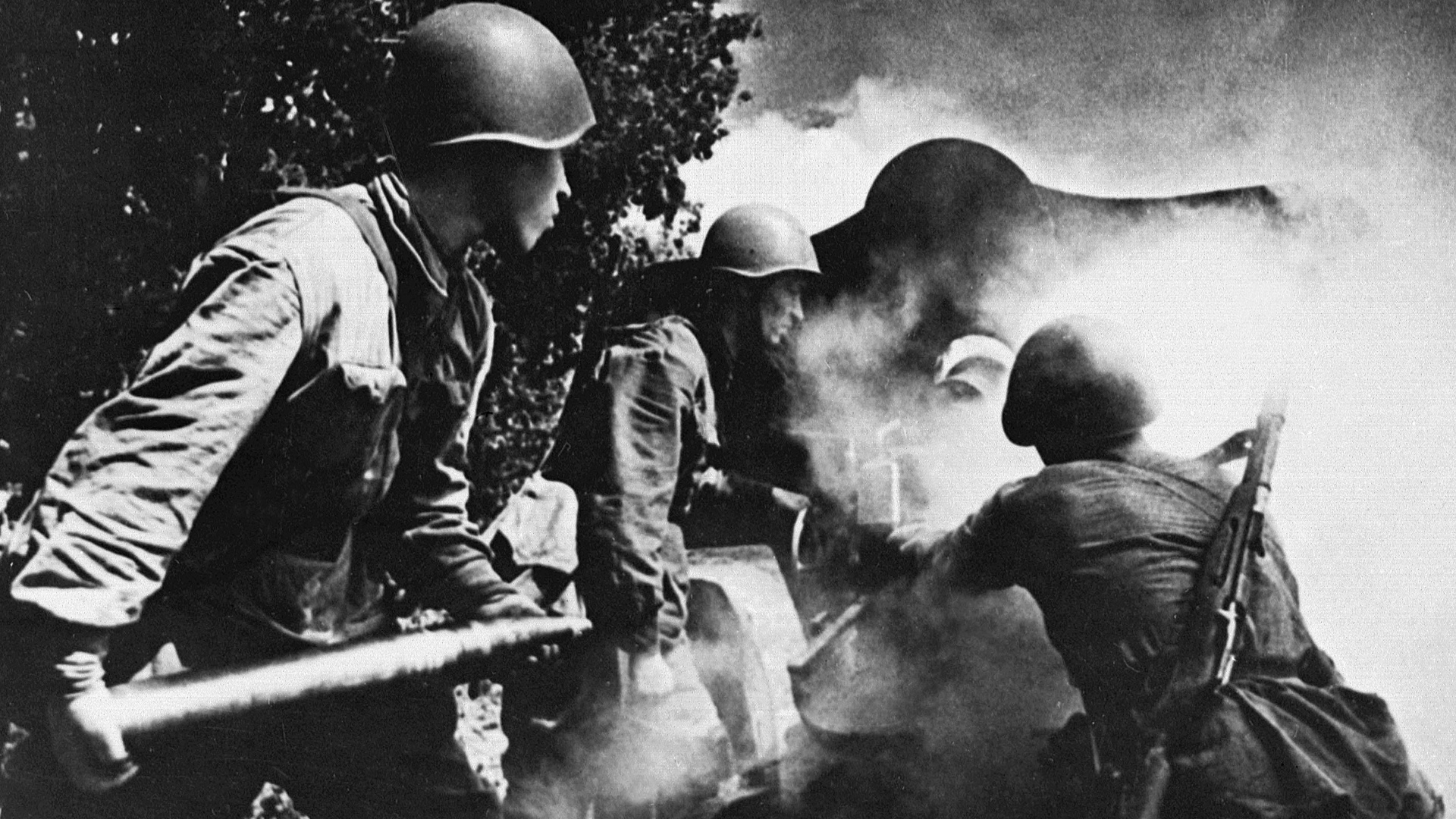After the thunderstorms of early August, Slovakia is basking in sunshine and a heatwave has descended. It is election season, and the nine party leaders with a shot at entering parliament are currently criss-crossing the nation in an attempt to drum up support. Of these, only three parties are polling in double-digits and, according to all major polling agencies, the man poised to secure first place in Slovakia’s elections on September 30 is the former prime minister and populist Robert Fico, leader of the Smer (Direction – Social Democracy) party.
Fico, a former communist, has had two previous terms, 2006-10 and 2012-18, both of which were riddled with allegations of sleaze, and overshadowed by a worrying sense of creeping authoritarianism. When Fico lost the 2020 election, his party split into two and people thought he was finished. Since then he has staged a remarkable comeback. His biggest challengers now are the socially liberal Progresívne Slovensko (PS) party, led by Michal Šimečka who is, among other things, vice-president of the European parliament, and also the leftist Hlas (Voice) party, led by Fico’s one-time party ally and former prime minister, Peter Pellegrini.
The upcoming elections have been given an additional layer of intrigue by the recent arrests of several top officials at Slovakia’s intelligence agency, as well as the director of the National Security Authority. The police investigators allege crimes that include forming a criminal group, the abuse of public authority, and the obstruction of justice – all of those claims date back to the Fico era. Police have also recently detained Tibor Gašpar, a former police chief and candidate for Fico’s party, and charged him with corruption.
Police raids, arrests, charges against high-ranking officials with links to Fico – Slovak politics is not especially calm at the moment. But this building sense of legal threat only helps to amplify Fico’s campaign, and his rhetoric is now dominated by allegations of what he calls a “police-led coup”.
Fico and all of his officials deny any wrongdoing – but, just like Trump, the more charges that are levelled, the more he dominates the headlines and the more he rants about his innocence, the more his support base hardens and the more his prospects seem to improve. He says the election is being rigged by Slovakia’s president, Zuzana Čaputová, whom he calls a puppet for the 92-year-old US financier George Soros, a hate figure for populists around central Europe. Since Soros is Jewish, the “puppet master” slur carries with it a heavy whiff of antisemitism.
Recent Slovak politics have been tumultuous – and sinister. Back in 2020, the country was reeling from the shocking murder of the investigative journalist Ján Kuciak and his fiancée, Martina Kušnírová, who were shot dead in their home. Kuciak was an investigative journalist for online news website Aktuality.sk and he focused on tax fraud by businessmen with links to Smer. The killing led to a wave of protests and a huge demand within society for change.
On top of this came the Covid pandemic and lockdown – and then the war in Ukraine. Slovakia has a border with Ukraine and the war feels very close. And then the economy was hit with crushing inflation and a cost-of-living crisis.
Snap elections were called earlier this year after the collapse of the four-party coalition government led by the anti-establishment, conservative Ordinary People and Independent Personalities party. For some time now Igor Matovič, the former prime minister who leads the party, has been one of the most unpopular politicians in the country. His party is so disliked it is now on the verge of falling out of parliament entirely.
The coalition government soon descended into internal but very public infighting that was aired to the nation in a daily round of news conferences. And after three years, the citizens grew tired and frustrated. It took the government several months to collapse completely, and since May the country has been run by a caretaker technocrat named Ľudovít Ódor, a central banker appointed by the president. He is the fourth Slovak prime minister in less than four years.
Slovakia is deeply divided ahead of these September elections, with basically two opposing political strains on offer: on the one hand is the authoritarian and illiberal Viktor Orbán-style of politics; on the other is a solidly pro-European and democratic option. Fico’s party labels itself as “Slovak social democracy”, and it can hope for support from the far right. The liberal progressives of PS will have to rely on support from smaller conservative and liberal parties. The other main party, Hlas, led by the former PM Pellegrini, refuses to govern with the far right. It’s quite possible that after the September elections no camp will be able to form a majority government.
“It will be the fight over the top three positions that will determine who will and can form a coalition,” says Václav Hřích, director of the AKO polling agency. Voter mobilisation will be key, and Fico is hoping that increased levels of dissatisfaction with politics will put off the voters who are opposed to him. “This is the biggest threat to [the progressives] and smaller democratic parties,” says Hřích. “The campaign finale will be very ugly, full of allegations and deceitful attacks.”
In this atmosphere that is seeping through society, Šimečka, leader of the liberal progressive PS party, is holding rallies around Slovakia.
I watched him meet voters on a beautiful sunny day in the western spa city of Piešťany, under a campaign banner promising a “Dignified Future”. He took selfies with a handful of cheerful supporters. “There is an exceptionally bad mood in Slovakia,” Šimečka told the crowd. “People are insecure about their future and frustrated by democratic politics. It’s a perfect storm for populists and extremists. You can change it only with your votes: change our country and its future.”
“The campaign is going to get uglier,” Šimečka told me when I spoke to him. “It probably will be tight… and we could have very close results. It could be hundreds of votes that will decide the outcome of this election.” He knows from bitter experience what he is talking about. At the last election, PS failed to meet the 7% parliamentary threshold by 926 votes – a number that haunts them to this day.
“In many respects Fico’s rhetoric is far right,” Šimečka told me. “He is attacking minorities. He seeks to undermine the rule of law and is openly taking pro-Russian positions, as has Viktor Orbán, his political role model.
“The possibility of him forming a coalition with the extremists – the fascists – is a threat to our democracy and our European future,” he said. “I will do everything in my power to stop this from happening.
“My sense is that you have to listen to him and he’s telling us what kind of allies he wants to choose – Viktor Orbán. Or even Vladimir Putin.” The PS party is steadily growing in the polls, some of which put them one percentage point behind Fico.
And as everything happens against the backdrop of the Russian war in Ukraine, worries about Slovak support for Kyiv are the central foreign policy issue. For months, Fico and his party’s candidates have been criticising the European Union, attacking sanctions against Russia, and also the Slovak government’s military help to Ukraine.
Fico’s pro-Russian positions even earned him a spot on a “black list” compiled by Ukraine’s Centre for Countering Disinformation, part of the country’s National Security and Defence Council.
Some of the most hateful rhetoric has come from Fico’s infamous party vice-chair, Ľuboš Blaha. Things got so extreme that a congressional group from the US led by Adam Schiff, chair of the Intelligence Committee, wrote to Facebook, insisting the platform remove “all harmful disinformation and pro-Russian propaganda on Slovak Facebook” from its site. Facebook duly banned Blaha.
Martin Poliačik, a former MP who is now deputy director of the Kyiv office at the Globsec think tank, told me: “We are dealing with a very different Fico than in the past. I do not think his foreign policy will be as pragmatic. With him as prime minister, support for Ukraine will decline. His government will likely pair with Hungary and wait for the west to get tired of the war.”
But others, such as Hřích the pollster and Pellegrini, predict that, in government, Fico will become more aligned with the European consensus on Ukraine and other issues.
“Fico is using this topic because he knows that it is currently working for him with part of the electorate to be anti-European or pro-Russian,” Pellegrini tells me, during his rally in the southern town of Nové Zámky. “If he were part of the government or, God forbid, the prime minister, he would find his way around [to the European view] very quickly.
“Slovakia is part of the European Union and Slovakia is part of Nato, and of course we will not disturb the unity of these organisations… We should not be like Trump, Putin or Orbán. We should have our own Slovak approach,” says Pellegrini.
“Slovakia with its own way” reads a campaign slogan in Nové Zámky, where Pellegrini and party leaders are rallying their supporters. The streets of this Slovak-Hungarian city are fairly empty, except for around 200 people who have turned up to see the leader of the Hlas party.
“You can vote for parties of the past or vote for parties of the previous government coalition, or a party without any experience,” Pellegrini tells the crowd. “Or you can vote for the politics of calm – without conflict,” he adds. As he steps down from the podium, a group of older voters gather round him – there are hugs and kisses on cheeks. I like you by the Slovak 1970s crooner Karol Duchoň plays in the background.
As Pellegrini was working the crowds in southern Slovakia and Šimečka was in the western spa town, Fico was launching his campaign in southern and eastern Slovakia. Eastern Slovak regions are his electoral strongholds – regions he once famously insulted, saying “there’s nothing there”.
This election will decide how pro-European, pro-Ukrainian, and reform-minded Slovakia will become. If Fico wins, and he is able to form a coalition government, the nation could become just another eastern EU pariah state. Orbán, and Putin, might gain a significant ally.



